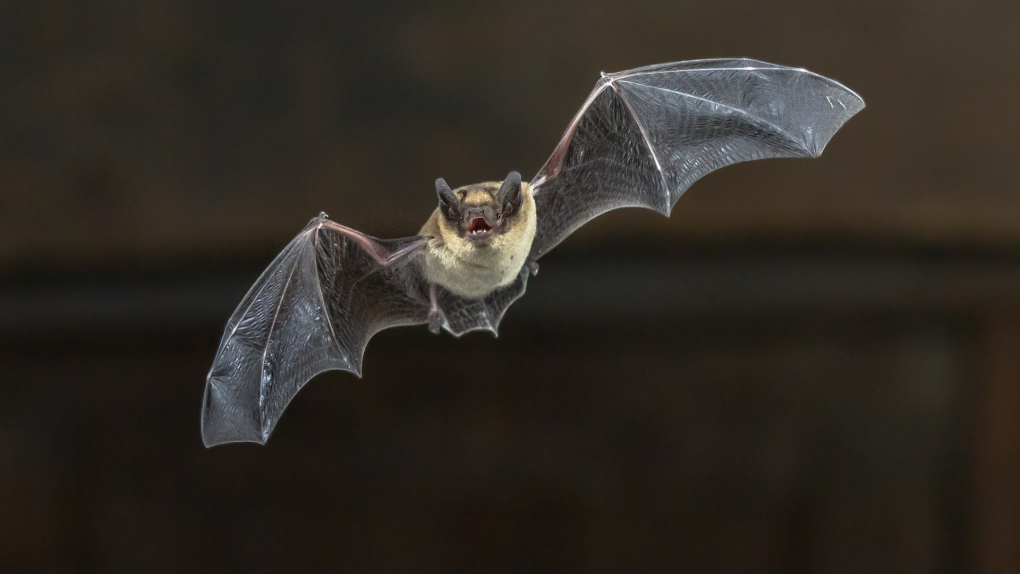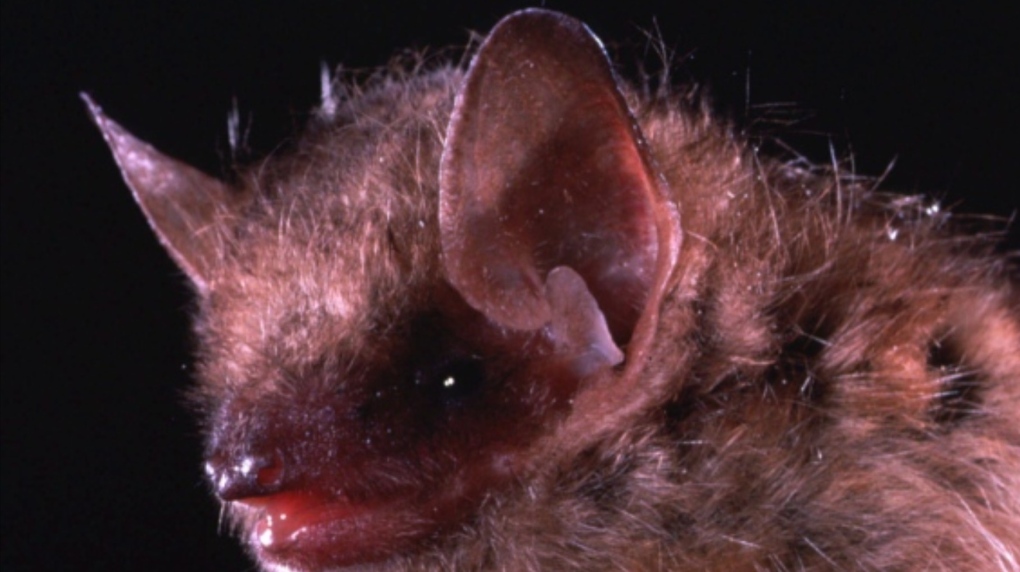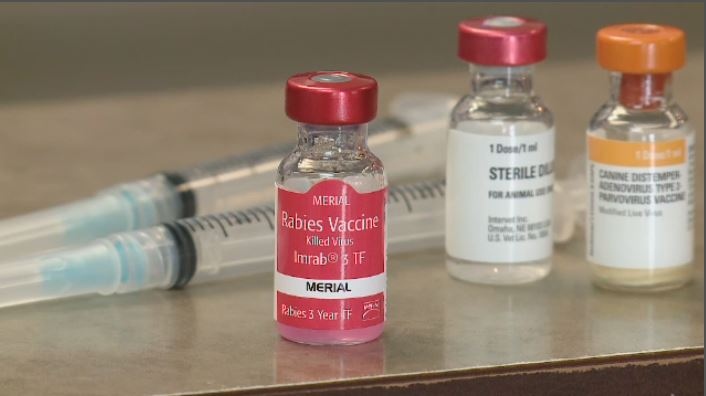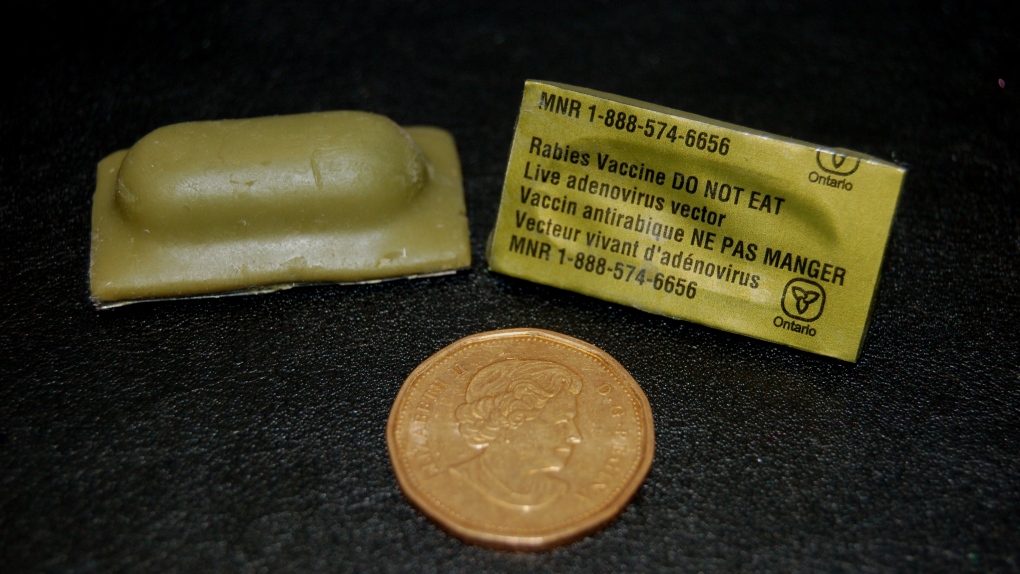'Be informed and stay safe': Rabies found in 2 bats in Peel Region
The City of Mississauga is urging residents to “be informed and stay safe” after rabies was recently detected in two bats in the region.
These latest occurrences in Peel are the ninth and 10th known positive cases over the last five years, the municipality noted.
No humans or pets have been infected, however, the City of Mississauga is advising people to be cautious as the virus can pose a “serious health risk.”
These two recent cases in Peel Region come a week after Ontario reported its first human rabies infection in more than half a century after a person from Brant County had direct contact with an infected bat in the Timiskaming area.
“We wanted to take this opportunity to remind people to you know, avoid direct contact with wildlife, and just to be aware that they we have found these two positive rapid bats in Peel Region,” Monica Hau, Associate Medical Officer of Health in Peel Region, told CP24 late Tuesday afternoon.
 A bat is seen mid-flight in this generic image from Getty. (Source: Getty Images)
A bat is seen mid-flight in this generic image from Getty. (Source: Getty Images)
Rabies 101
Rabies is a deadly illness that affects the central nervous system of warm-blooded animals, including humans, causing inflammation of the spinal cord and brain.
It is almost always fatal, if untreated.
“Once in the body, the virus travels through the nervous system to the spinal cord and brain, replicating itself, and then travelling to other areas of the body,” the City of Mississauga said in a news release.
Rabies is a fairly common virus that is endemic in nature with an ongoing presence in bats and other wild animals, said Hau.
The incubation period is usually 10 days for dogs and cats.
Rabies is transmitted through saliva and/or mucous from an infected animal. While most cases are seen in bats, foxes, raccoons, and skunks, dogs and cats are also at risk of contracting the virus.
Hau noted that bats are the most common species of animal to carry rabies in Canada. However, she said it is “unusual behaviour” and “extremely rare” for the flying mammals to bite humans and infect them with the virus.
She noted that, on average, there have been two cases of rabid bats recorded in Peel Region over the last decade.
 This is an undated closeup photo of the eastern pipistrelle bat. (THE CANADIAN PRESS/AP/Merlin D. Tuttle, Bat Conservation International)
This is an undated closeup photo of the eastern pipistrelle bat. (THE CANADIAN PRESS/AP/Merlin D. Tuttle, Bat Conservation International)
Some of the initial human symptoms of rabies include anxiety, cough, fever, headaches, irritability, sore throat, and tiredness.
Someone who has been exposed to rabies without treatment may also experience pain, tingling, numbness or itching around the wound, the municipality noted.
Symptoms of rabies can take between three to eight weeks to appear after exposure. However, they can progress quickly and the virus can be fatal within weeks of symptoms developing.
The more advanced symptoms of rabies include confusion, excitement, hallucinations, inability to drink water, increased saliva production, partial paralysis, and trouble sleeping and swallowing.
Rabid animals, meanwhile, tend to show unusual aggression or friendliness, have trouble swallowing or excessive drooling, and may stumble or experience paralysis.
Nocturnal animals, like raccoons and bats, may also be active during the day, the municipality said.
What to do if you believe you or your pet has been infected
Anyone who believes that they may have been exposed to rabies should immediately wash the wound with soap and water, apply antiseptic, and seek immediate medical attention from a healthcare provider or a local hospital, as a four-dose, post-exposure vaccine may need to be administered. People are also asked to report any incidents to Peel Public Health.
Anyone concerned about a pet possibly having rabies is being urged to contact a professional for a proper diagnosis.
Further, anyone who sees an animal displaying symptoms of rabies should contact Mississauga Animal Services at 905-896-5858.

How to stay safe
· Don’t approach, touch or feed wild animals, especially if they seem sick or aggressive.
· Make sure your pets are up to date on their rabies shots.
· Keep trash bins closed and don’t leave pet food outside to avoid attracting wild animals.
· Do not let your pets roam freely outdoors – keep them on a leash to avoid contact with wild animals.
· Watch your pets closely, even on your own property, to lower the risk of your pet being exposed to a potential carrier.
· Tell children not to approach, feed or touch wild animals, even if they seem friendly. Hau urged anyone who sees a bat or other wild animal in their home to not try to remove it themselves and instead contact animal services for assistance.
· If you or your pet is bitten or scratched by a wild animal, get medical help right away and report it to Peel Public Health at 905-799-7700. A Public Health Inspector will investigate the incident.
· Do not keep wild animals as pets.
 A rabies vaccine that is being distributed by Ministry of Natural Resources crews in some green areas in Toronto is shown. (Government of Ontario)
A rabies vaccine that is being distributed by Ministry of Natural Resources crews in some green areas in Toronto is shown. (Government of Ontario)
Residents are also advised that the City of Mississauga is participating in the Ontario Government – Ministry of Natural Resources’ rabies bait program. As part of this initiative, small yellow pill packets containing a rabies vaccine are being left in parks, trails, or forests throughout the city. These packets are not harmful to pets or humans, but shouldn’t be touched as they are meant for wildlife to eat.
CTVNews.ca Top Stories

BREAKING Real GDP per capita declines for 6th consecutive quarter, household savings rise
Statistics Canada says the economy grew at an annualized pace of one per cent during the third quarter, in line with economists' expectations.
W5 Investigates A 'ticking time bomb': Inside Syria's toughest prison holding accused high-ranking ISIS members
In the last of a three-part investigation, W5's Avery Haines was given rare access to a Syrian prison, where thousands of accused high-ranking ISIS members are being held.
Class-action lawsuit on 'opioid-related wrongs': Court to rule on drug companies' appeal
Canada's top court will rule Friday on the appeal of a class-action lawsuit meant to recoup some of the costs associated with British Columbia's opioid crisis from major drug makers and distributors.
As Australia bans social media for children, Quebec is paying close attention
As Australia moves to ban social media for children under 16, Quebec is debating whether to follow suit.
Irregular sleep patterns may raise risk of heart attack and stroke, study suggests
Sleeping and waking up at different times is associated with an increased risk of heart attack and stroke, even for people who get the recommended amount of sleep, according to new research.
California man who went missing for 25 years found after sister sees his picture in the news
It’s a Thanksgiving miracle for one California family after a man who went missing in 1999 was found 25 years later when his sister saw a photo of him in an online article, authorities said.
Trudeau Liberals' two-month GST holiday bill passes the House, off to the Senate
The federal government's five-page piece of legislation to enact Prime Minister Justin Trudeau's promised two-month tax break on a range of consumer goods over the holidays passed in the House of Commons late Thursday.
Nick Cannon says he's seeking help for narcissistic personality disorder
Nick Cannon has spoken out about his recent diagnosis of narcissistic personality disorder, saying 'I need help.'
Notre Dame Cathedral: Sneak peek ahead of the reopening
After more than five years of frenetic reconstruction work, Notre Dame Cathedral showed its new self to the world Friday, with rebuilt soaring ceilings and creamy good-as-new stonework erasing somber memories of its devastating fire in 2019.

































